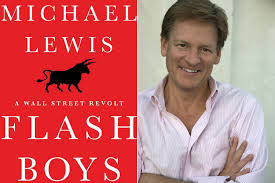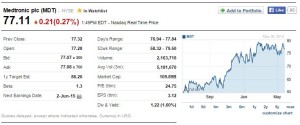Today is a special day in the United States. We reflect on all the amazing blessings we have in life—our families, our jobs, our friends. For me it’s Foxy Lady, Lil’ Fox, and Mini Fox in some order. There’s also world peace (more on that in a second), technology that has immeasurably improved our lives, and a little place called the United States of America.
However this is a personal finance blog, so what are the Top 5 reasons to be thankful (wearing an investing lens) for:
5. No wars—This is a pretty humanitarian one. In my lifetime, the biggest war the US (and the developed world for that matter) has fought is probably the Second Iraq War with 4500 deaths. That’s a tragedy for sure, but compare that to the generational death toll of US soldiers from war pre-1975: Vietnam-58,000; Korean War-37,000; World War II-405,000; World War I-117,000. That alone is SO, SO much to be thankful for.
Of course, war is bad for investing. It destroys buildings and infrastructure that is meant to produce things. Once the war is over those things either need to be rebuilt which costs a lot, or people just move on and all that productivity is lost. And that’s not even mentioning the dead, many of whom are educated and highly productive people. No matter how you cut it, armed conflict is bad, and we’ve enjoyed an amazingly peaceful 40 years, even with those periodic skirmishes. That’s great for investing.
4. Tame inflation—When I was growing up, and even when I was in college in the late 1990s, we always thought inflation would naturally settle around 4-5%. Before then, expectations were even higher.
We all know that inflation relentlessly eats away at the purchasing power of our savings. Some economists argue whether too low of inflation is good or bad (I think the lower the better), but everyone agrees that too high inflation is a bad thing.
For the past 10 years we’ve had inflation hovering around 1.5%, including 2015. This year looks like it will be around 2.1% or so; that’s higher than it’s been in nearly a decade which speaks to how low inflation has been.
When you look at economic disasters over history, more often than not, they involve crazy inflation that has run out of control. We’ve had a great run on this, and there’s no reason to think it will end any time soon.
3. A nation of laws—It’s easy to get caught up in all the BS of politics and a 24-hour newscycle that our nation is facing right now. One might think that the country’s going to hell, but it’s not.
Things work. We have rules that 99.99% of the people follow 99.99% of the time, and the system works. This is especially true in the stock market where by and large it’s a fair game. There haven’t been any major scandals or houses of cards like we saw in 2008 or 2001 or even 1929.
There’s always going to be some level of shenanigans just based on the nature of greed, but as an investor I do feel things are on the up and up. So long as that’s the case, we’ll make money.
2. A 9-year bull market—So far in 2017, stocks are up about 20%. That’s pretty astounding. That has created a tremendous amount of wealth for common investors. That’s an incredibly democratizing process.
As good as this year has been, it’s just the latest in a string of amazing years since 2008. However, if you take a longer view, over the last 40-years, things have been equally spectacular. The average return since the year of my birth (1977) . . . over 11%. And that’s compounded annually which is something all those 4th and 5th graders from the Summerfield Open will appreciate.
We’re on a good run right now, and of course it will slow down at some point, the timing which Robert Schiller and I disagree on (and I’ve been proved right so far). But even a longer-term view shows how good things have been, and really there’s no reason to think the future will be otherwise.
1. Internet—I’ve mentioned this a number of times, but it’s hard to overstate the amazingly positive impact the internet has had on investing. First, it makes actual investing so much easier. You can research companies more efficiently than could have been imagined pre-1995. Also, you can actually conduct transactions so much easier, compared to before when you had to do everything over the phone with a broker.
Also, there are those little companies called Amazon, Microsoft, Apple, Google, Facebook, and a slew of others. Those all have business models based on the internet. They have brought tremendous benefits to society, and along the way have made tons of money which has gone to their investors, this one included.
So many things are more important than money and investing, and those are at the top of my list of things I am thankful for as I dig into my turkey today. However, wealth is a great enabler. For me it allowed me to quit my job to become a full-time stay at home fox for my two cubs. To the degree that my investments facilitate that, I am thankful for investment tailwinds like the five I just mentioned.
Everyone, have a great Thanksgiving.






